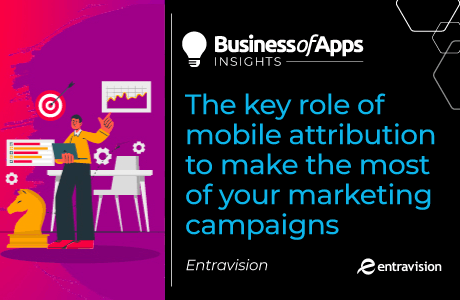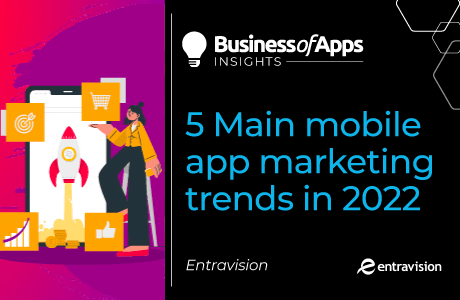Most app marketers have tried it all: Facebook, Google, Apple Search, Twitter, Tik Tok, Snapchat, Influencers, Ad Networks, you name it. But when it comes to getting total control over your campaigns, how and when they are running, advanced app growth leaders are looking at programmatic media buying as a solution for reach and scale. With so many alternatives, finding the best DSP for user acquisition can be a challenge.
Three Mobile Masterminds that have walked the path of finding the best mobile DSPs and the characteristics that served them well shared key elements to consider when evaluating to add a DSP to your growth arsenal.
Ask for placement-level campaign reporting transparency
For marketers tired of black-boxes, transparency is becoming a must-have. Considering that the programmatic ecosystem is an open network of publishers, data providers, exchanges and tech integrations, DSPs that provide full transparency for both self-served users and managed, are the ones Mobile Masterminds recommend.
“The beauty in running programmatic campaigns is actually being able to see where your ads are being served. Additionally, I love learning the insights; contextually and behaviorally. Combining these two elements allows you to ultimately help inform how your next optimization and strategies are structured.” said Rina Nagashima, Director of Growth at Peer Stream.
“I expect down to the placement level of campaigns. Exchange, publisher, ad size, geography, demographic, content, and additional insightful information that the DSP can provide is only going to help the advertiser make sound decisions on their marketing strategy. Every data point can be used to inform a decision and that’s essentially what marketers need, on a real-time basis.”
Machine learning models play the biggest role
Performance is all about reaching the right users. To do so, you need to get access to the best ad exchanges, but also having the best algorithms to identify the right audience among billions of users. The best DSP for UA has put special attention to machine learning and data science.
Context-aware tech: The secret to 81% more conversions
Learn how leading apps are using context-aware technology to deliver perfectly-timed offers, reduce churn & transform passive users into loyal fans.
Learn moreExperienced programmatic specialist Pau Quevedo, Lead Programmatic Trading at GoodGame Studios says “There are some bidder solutions that are becoming increasingly more relevant, allowing further customization and the ability to not share your data through the models with other advertisers. Unfortunately this also means that you don’t benefit from having a generic algorithm in place during the prospecting phase, but rather you have to build it based solely on your data, this is quite costly and takes time. For this reason, mobile first DSPs are probably a better solution at this point. “
For Mobile-first users, start with Mobile-first DSPs
Not all programmatic inventory is accessed the same way, and each DSP company prioritizes integrations according to their market focus. Check for DSPs that can provide you the best access to audiences, publishers and formats for your marketing goals. Sergio Palau, Mobile Marketing Manager at Flixbus recommends “taking into account what supply they have access to. Do they focus on video or banners, mobile or desktop? At the same time, you want to clarify the concrete sources they could reach as this could be relevant for the addressable audience for your product.”
“Mobile-first DSPs are able to listen to all the Rewarded Video traffic needed, so unless you want to target other formats, you don’t need to look elsewhere.”, Pau shared. “Gaming supply chain is quite opaque and unlike Desktop—it hasn’t embraced in-app bidding yet. For this reason (generalist) DSPs in mobile are actually in a disadvantageous position when it comes to the auction, finding a DSP that actually understands the supply chain is key. This lack of transparency on how the supply chain actually works makes it so that buyers might have the proper tech and strategy in place but fail to deliver given the market conditions.”
Look for capabilities based on your specific need
DSPs can have unlimited features. Prioritize those that have the integrations needed for your specific need. Sergio suggests: “Look for targeting capabilities. From the basics to the complex depending on your needs. Some might want to go as granular as ZIP code and others won’t really care. This will be similar with device models and OS versions. While some industries won’t care — like travel, food delivery, etc. There are others such as gaming that take particular attention to it.
Pau added, “Our department runs several DSP tools at the same time—since we still haven’t found a one size fits all solution. When evaluating a DSP we look at variables like ML, creative tools, QPS, retargeting products, premium inventory, API automation and other elements related to platform operations.”
Check if they really own the technology
Sergio reminds us that many programmatic vendors don’t own the technology they are using: “Another point to consider is, whether the service that is being offered is built on their own code or licensed from a third party. This also ties into the question of how their system could be integrated into your own BI for better internal transparency towards other stakeholders on the DSPs performance and how the entire reporting they do fits into your system.”
If you don’t have it in-house check for Strategic and Creative support
Many times campaigns are delayed because you don’t have the capabilities to develop the creatives needed to test different messages of concepts. Some DSPs can take your campaigns to the next level with their own support teams. “Depending on the size of your company and creative team, the offer of imaginative support and resources from a DSP can be a godsend, so this is also a very important aspect towards finding a DSP that is great for you.”, said Sergio from Flixbus.
And finally, ask for references
“As we all know what works for one doesn’t work for all, so to find a DSP that works great for your UA efforts you may need to try several out. Since this of course costs money it would be advisable to first try to narrow the pool of candidates to a more manageable size. Among the strategies that I have used and work great for this is the word of mouth, meaning the personal experience of other marketers you trust that have had good results with a specific DSP and can provide a first great filter.”
7 ways to find the best DSP for your user acquisition campaigns
- Ask for placement-level campaign reporting transparency
- Machine learning models play the biggest role
- For Mobile-first users, start with Mobile-first DSPs
- Look for capabilities based on your specific need
- Check if they really own the technology
- If you don’t have it in-house check for Strategic and Creative support
- Ask for references
This article was originally published on Mobile Masterminds, the community of mobile app experts, presented by Smadex.












